Iran’s Regime Warns Protesters Of Execution Amid Countrywide Strikes

Iran's Chief Justice says death sentences of several protesters have been confirmed and they will be executed soon.

Iran's Chief Justice says death sentences of several protesters have been confirmed and they will be executed soon.
Gholam-Hossein Mohseni Ejei stated Monday that “rioters” will be promptly dealt with by the judiciary and security organizations. Ejei further went on to express that the protesters who have been condemned to death would soon be executed.
It is not clear whether prisoners whohave been formally sentenced would have any remaining right to appeal.
Iran’s use of the death penalty for protesters has been sharply criticized by the United Nations while some countries and many right groups have also condemned the move.
According to Amnesty International at least 28 inmates currently face execution for participation in the demonstrations, including three minors.
Meanwhile, the Revolutionary Guard released a statement to praise the judiciary’s decision urging it to decisively issue verdicts against “defendants accused of crimes against the security of the nation and Islam.”
“The country's security, intelligence, law enforcement and mobilization forces will not hesitate to deal decisively with rioters, thugs and the terrorists hired by the enemy,” Tasnim News Agency quoted the IRGC as saying.
Hardliners led by the IRGC call protesters “rioters” and “thugs”.
The threats by the Judiciary and the IRGC come amid nationwide strikes by workers and businesses to overthrow the clerical regime.
Many believe such remarks following the calls for three-day strikes and protests across the country are to scare the demonstrators to stop their movement to oust regime.

Anonymous underground grassroots groups formed across Iran during the past two months to organize antigovernment protests have joined hands for the same cause.
Until the call last week for three days of strikes and protests that began Monday, these young activists were serving as the unofficial leaders of movement, mobilizing thousands of people across the country through social media. But recently, the groups from at least 30 cities have formed an alliance.
The names of almost all these groups follow a simple formula adopted in the capital - Youth of Tehran Neighborhoods – or simply Tehran Youths (Javanan-e Tehran). Initially, this group was organizing rallies in Tehran and other cities and towns. Soon after, groups with similar names sprang up around the country and coordinated their announcements with the Tehran group.
The antigovernment protests in Iran often had no known leaders in the past five years, with all independent groups and political parties banned and disbanded long ago. Therefore, such grassroot groups seem to represent a new opposition force successfully issuing calls for demonstrations nationwide. The mobility of protesters and their distribution in various neighborhoods has now turned into a big problem for the security forces who are seen in some videos aimlessly running around to confront protesters and exhausting themselves even more after long hours of deployment.

These groups somewhat differ in tone and language visible in their statements, but they are unanimous in their goal to overthrow the Islamic Republic and all committed to their motto: Women, Life, Liberty. Some of these groups have issued about 20 statements so far but their first statement as a united front was released for the three-day action on December 5, 6, and 7. December 7 is Student Day in Iran and marks the anniversary of the 1953 murder of several students at University of Tehran. It is a traditional day of nationwide rallies. To coincide with Student Day, protesters are calling for strikes by businesses and a rally towards Tehran's Azadi (Freedom) Square, according to posts shared on Twitter.
In their statement, they called on all other groups who believe in "a democratic Iran with all its territorial integrity and based on universal human rights" to join them to help "overthrow the despotic Islamic regime.”
However, Iranian dissidents everywhere and outside these groups, although all support the underground activists. Numerous hacktivist groups and student groups have been fighting against the regime since the early days of the movement. In a recent move, Iranians have started using the Darknet, a shadow realm within the internet, to publish home addresses and cell phone numbers of members of Iran’s IRGC, its Basij militia and police forces who are oppressing and attacking protesters to enable the public to seek out revenge.
Israeli cyber intelligence firm Deep Void, whose founders have a background in Israeli intelligence, has revealed the phenomenon in which Iranian protesters are using the darknet to fight back against the regime’s agents, who during past protests could attack protesters and then disappear into anonymity.
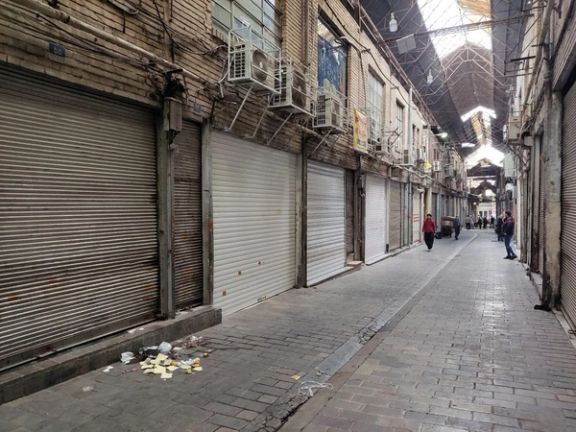
Thousands of retail businesses in Iran went on a general strike Monday after underground activist groups called for three days of protests and market closures.
The three-day period started on Monday and will end on Wednesday. Nationwide protests are also expected to start Monday afternoon, while the authorities have run out of options to subdue the protesters, after resorting to deadly violence since mid-September.
Reports say businesses in over 40 cities across Iran are on strike with over 90 percent of retailers shutting their doors in a move that will be costly for the already beleaguered economy.
Tehran, Rasht, Karaj, Esfahan, Shiraz, Ardebil, Dezful are the main cities observing the shutdown to step up pressure on authorities.
Similar calls for strike action and mass mobilization in past weeks have strengthened the protest movement and led to a political crisis for the regime.
Workers at oil industry sector have also expressed support for the three-day call saying that all imprisoned workers, teachers, students must be released as soon as possible.
In universities, students have gone on strike to join the three-day movement that has called for the overthrow of the Islamic Republic.
Nearly 500 people have been killed in the unrest that erupted in September after the death in custody of Mahsa Amini, a 22-year-old woman who was detained by ‘morality police’ for breaking hijab rules.
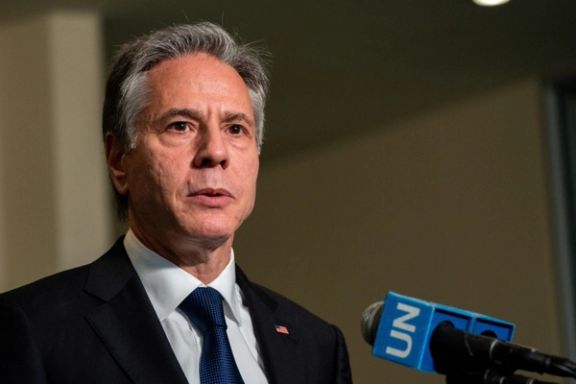
US Secretary of State Antony Blinken says whatever happens in Iran has nothing to do with the United States and everything depends on Iranian’s will.
Blinken made the comments in an interview with the CNN following claims by Iran’s Attorney General Mohammad Jafar Montazeri who said Saturday that the controversial ‘morality police’ is “abolished”.
“It’s not about us. And what we’ve seen since the killing of Mahsa Amini has been the extraordinary courage of Iranian young people, especially women… standing up for the right to be able to say what they want to say, wear what they want to wear,” Blinken said.
Blinken also referred to Washington’s sanctions on those responsible for the crackdown on protesters in Iran.
“This is about people in [Iran] trying to express their views, trying to have their aspirations met, and the response that the governments are taking to that,” he said.
Iran’s Attorney General said Saturday that the “morality police” was disbanded, while there is no official confirmation, and many Iranians see the remark as a propaganda ploy.
In a separate Interview with CBS Blinken reacted to comments by Montazeri saying “if the regime has now responded in some fashion, to those protests, that could be a positive thing. But we have to see how it actually plays out in practice. And what the Iranian people think. This is about them, and it's up to them.”
The Attorney General's comments also seemed to be a temporary tactic to diminish the severity of protests ahead of the three-day nationwide protests and strikes which began on Monday.
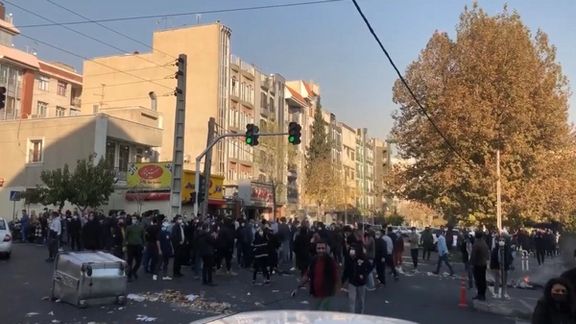
Iranian pundits increasingly point out that unlike previous protests driven by economic or electoral grievances, the current uprising demands regime change.
Reformist analyst Abbas Abdi openly said in an interview in Tehran that protests in 2009 did not call for regime change, but "the demand of current protesters is to change the regime. They do not know what will happen next, but they believe whatever that might take place will be better than the current situation."
Abdi said some of the characteristics of the current protests are that "They are deep-rooted, have taken the government by surprise, they have been continuing for a long time, and have gone further, in a way that it is impossible to return to the situation as it was before."
Abdi said that another characteristic of the movement is that the people have behaved in a way during the past 10 weeks that they can no longer retreat. They have challenged the core of the regime and Supreme Leader Ali khamenei.
He added that the main question is not, as some officials charge, that foreigners have instigated the protests. Even if we suppose that is true, it is not important who started the movement. “What is important is that it is taking place in Iran."
Abdi stressed that, "This is not a riot. This is a protest that was predicted long ago. The reason why it did not quickly follow the 2019 protests, was the coronavirus pandemic."
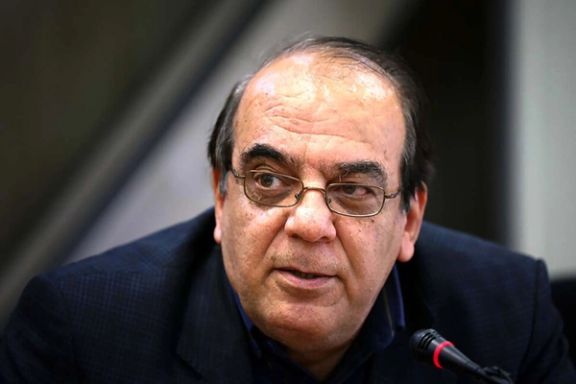
He added that the government was taken by surprise because it never pays attention to society. It is always watching other countries. All these youngsters in the streets have been in classrooms where teachers and headmasters have been in close contact with them. How could have they not noticed that something was going on? The reason they did not see it, is that no one in the government wishes to really see the society, even now when it is in turmoil. Even the intelligence organizations found out about the movement after they arrested the protesters."
Abdi said this comes while young people were not acting secretly. They even showed off what they are doing. He explained that generation Z is only the driving force of the movement. The other part, which is important but neglected is the silent majority that follows the movement. He said that many opinion polls the government did not allow to be published indicate that some 60 to 80 percent of the population support the youngsters in the streets although they may not be as vocal.
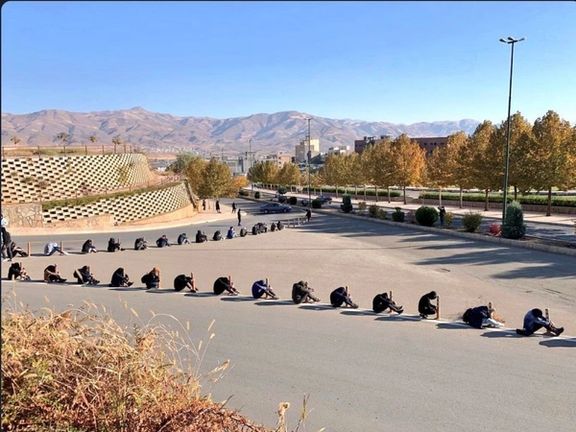
Abdi's interview coincided with the publication of an interview with Iranian American sociologist Asef Bayat with Rouydad24 news website in Iran. Bayat is the author of books such as Revolution without Revolutionaries, Street Politics, and Global Middle East, whose observations about the Arab Spring are widely acclaimed in the US academic and political circles.
He said in the interview that it is in the nature of the street that a common cause can turn a gathering of 500 individuals into a massive rally of several thousand people.
Speaking about the current Iran protests and the violence and suppression that have been going on in the streets during the past 10 weeks, Bayat said: "People do not like to be on the streets. They want to live peacefully. The reason why people take to the streets is that politics stops working. Politics means an institutional mechanism to settle political, social and economic disputes and reach a democratic agreement. When the government cannot do that and does not allow the people to have their representatives in the government, citizens tend to take part in strikes or refuse to go to classrooms. But some citizens such as those who do not have a job might take to the streets to voice their demands and to show their social power."
He went on to say, "Authoritarian governments do not tolerate protesters presence in the streets because they do not want the people to believe in their collective social force."
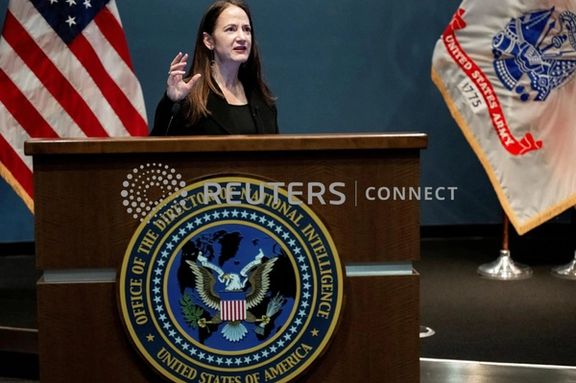
A top US intelligence official has predicted that the nationwide strikes in Iran will gradually expand to become a greater threat to the Islamic Republic.
Director of National Intelligence Avril Haines on Saturday said the Iranian government does not consider the current protests as an “imminent threat to the regime.”
In an interview with NBC News, Haines added that Iranian authorities may not see the demonstrations as a threat now but could face more unrest because of high inflation and economic uncertainty.
“We’re not seeing the regime perceive this as an imminent threat to their stability and effect,” she said. “On the other hand … they are really having challenges and even nationwide seeing sporadic close-downs of businesses, [which] from our perspective, that’s one of those things that will lead to a greater risk of unrest and instability over time.”
The popular protests demanding an end to Islamic rule started in mid-September when 22-year-old Mahsa Amini was killed in the custody of the so-called “morality police,” igniting the boldest protest movement against the Islamic Republic in its 43-year history.
Over 18,000 people have been arrested since the beginning of the protests, and some death sentences have already been issued for protesters, though none have been carried out. According to US-based HRANA on December 4, 471 protestors and 61 members of the security forces have been killed in protests since September 17.